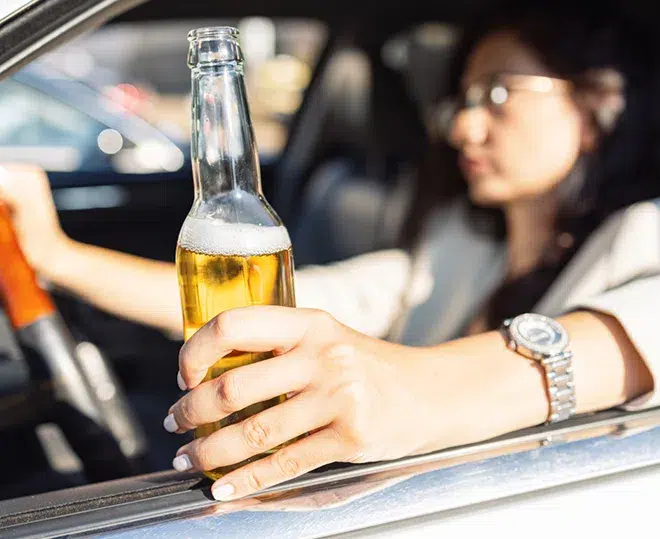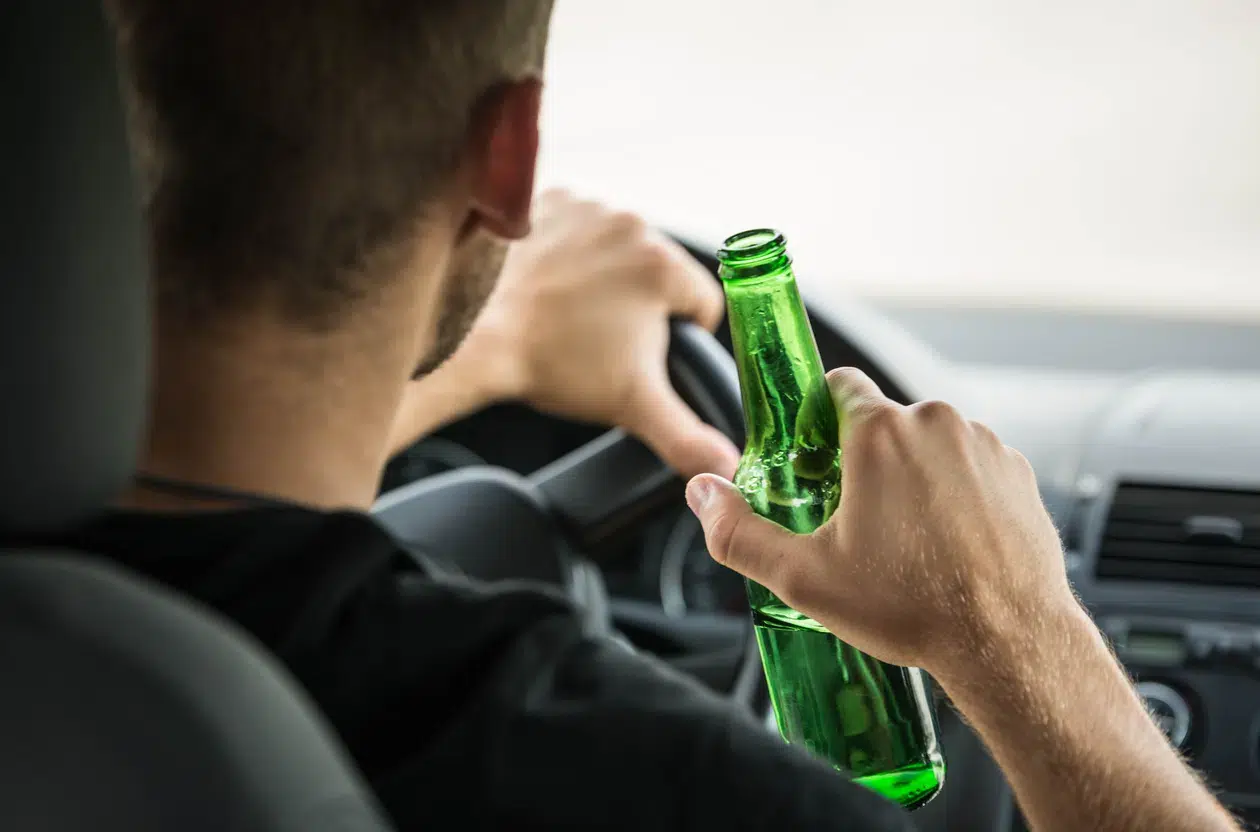While most people appreciate the hard work of law enforcement officers keeping everyone safe, the very sight of flashing lights in your rearview mirror after you’ve had a couple of alcoholic drinks is enough to send a chill down your spine. So, what happens when you are charged with a DUI in Virginia? Will you be facing a misdemeanor charge, or will your DUI be considered a felony? The attorneys at The Law Office of Scott C. Nolan, PLLC, explain how felony DUI charges work in Virginia and what a Fairfax felony DUI lawyer can do to help you secure a better outcome for your case. If you are facing DUI charges in Fairfax, VA, call The Law Office of Scott C. Nolan, PLLC, at 703-688-9236.

Are DUIs Considered Misdemeanors or Felonies in Virginia?
In Virginia, driving under the influence (DUI) is the offense of operating a motor vehicle with a blood alcohol concentration (BAC) of at least 0.08% or higher. This legal threshold is even lower for commercial drivers (0.04%) and drivers under the age of 21 (0.02%). Additionally, Virginia laws allow for someone to be charged with a DUI if their BAC is below the legal limit but they are showing clear signs of impairment, such as difficulty controlling their vehicle, slurred speech, and bloodshot eyes.
In Virginia, a DUI can be referred to as a “wobbler” offense, meaning that it can be charged as either a misdemeanor or a felony, depending on the circumstances. In most cases, a DUI is charged as a misdemeanor, especially if it is a first-time offense and nobody was injured or killed. However, repeat offenders and first-time offenders with aggravating circumstances may end up facing felony charges for a DUI in certain cases.
What Makes a DUI Be Charged as a Felony?
A DUI may automatically be charged as a felony if an individual is convicted of three DUI offenses within a 10-year period. In addition, if the individual has been previously convicted of any type of felony DUI offense, any new DUIs may also be considered felonies. In some cases, a first-time offender could be facing felony DUI charges if their actions caused someone else to be injured or killed.
It is important to mention that a driver who injures or kills someone while intoxicated could be facing additional felony charges such as DUI maiming or manslaughter, regardless of whether this is their first DUI or not. In general, severe DUI-related offenses are considered Class 6 felonies in Virginia and are subject to fines and prison time.
What Are the Penalties for a Felony DUI in Fairfax, Virginia?
For a felony DUI, penalties are severe and come with mandatory minimum sentences that make it difficult to avoid jail time. If this is your third DUI conviction within ten years, you may be sentenced to a minimum of 90 days in jail. If your third offense happened within five years or less from the second offense, the minimum jail sentence is six months. There may also be a mandatory fine of up to $1,000.00 in addition to having your license revoked permanently.
If you are charged with a Class 6 felony for a DUI in Virginia, you would be facing the least serious type of felony charge, but that does not mean your charges may be taken lightly. Having any type of felony on your record can cause serious consequences that affect other areas of your life. You may lose your driving privileges indefinitely and may have difficulty keeping your job or finding new employment due to having a criminal record and being unable to drive. In addition, you may also face challenges in situations that require passing a background check, such as renting an apartment or securing education opportunities.

How Can a Fairfax Felony DUI Lawyer Help Me Defend Against a Felony DUI Charge?
If you are facing felony DUI charges, chances are you have a lot on the line. Your best bet is to hire a skilled felony DUI defense attorney as soon as possible. Your attorney can help you understand your charges and potential penalties and devise a defense strategy to help you reach a better outcome.
There are several different defense strategies an attorney may use, depending on the specific circumstances surrounding your arrest. For example, if you were charged with a DUI after a police officer pulled over your vehicle, your Fairfax felony dui attorney can conduct an investigation to determine if the police officer truly had enough probable cause to conduct the traffic stop.
If it is determined that the stop was made without sufficient probable cause, any evidence collected during that stop may be considered inadmissible as it may be the product of an illegal search and seizure that violates the defendant’s constitutional rights. If that’s the case, evidence such as breathalyzer results or field sobriety test results may have to be suppressed from the court case, weakening the prosecution’s arguments against you. This could potentially lead to the prosecution dropping all charges against you.
Every case is unique, and results are not guaranteed, but the sooner you reach out to a Felony DUI defense attorney, the better your chances are of avoiding the maximum sentence and reaching a favorable outcome for your case. The Fairfax felony DUI attorneys at The Law Office of Scott C. Nolan, PLLC, have assisted countless clients facing felony DUI charges in Fairfax, VA, and surrounding areas, and they are ready to help you fight back to keep your license and your freedom. If you are being charged, call The Law Office of Scott C. Nolan, PLLC, at 703-688-9236.
Fairfax Felony DUI Lawyer FAQs
A DUI becomes a felony in Virginia if it is your third or subsequent DUI offense within 10 years, or if the DUI resulted in serious injury or death. Prior convictions and aggravating circumstances can elevate the charge from a misdemeanor to a felony.
In many states and in the federal law, these are two distinct crimes, but in Virginia they are just two different ways of referring to the same crime.
Felony DUI penalties in Fairfax may include mandatory jail time, fines of up to $2,500, a lengthy license suspension, installation of an ignition interlock device, and a permanent criminal record. Repeat offenders face harsher sentences.
A misdemeanor DUI generally applies to first or second offenses without injuries or fatalities. A felony DUI involves repeat offenses or DUI-related crashes causing serious injury or death. Felony charges carry much steeper penalties, including longer prison terms.
A Fairfax felony DUI lawyer can challenge the validity of breath or blood tests, question police procedures, dispute probable cause for the traffic stop, and investigate potential violations of your constitutional rights. Strong defense strategies can lead to reduced or dismissed charges.
A third DUI within 10 years is classified as a Class 6 felony in Virginia. Conviction can lead to a minimum of 90 days in jail, a mandatory fine, and an indefinite driver’s license revocation.
A DUI involving serious injury may lead to a felony charge under Virginia Code §18.2-51.4, while a DUI resulting in death can lead to involuntary manslaughter charges under §18.2-36.1. These offenses carry severe prison sentences and long-term license revocation.
While jail time is often mandatory for felony DUI convictions, a skilled attorney can negotiate plea deals, argue mitigating circumstances, or seek alternative sentencing options such as treatment programs.
A felony DUI conviction leads to an indefinite license revocation. You may apply for restricted driving privileges after a certain period, depending on your record and completion of court-ordered programs.
Yes. If driving privileges are restored, you must install an ignition interlock device on any vehicle you operate. The device monitors alcohol use and ensures compliance with probationary terms.
A felony DUI conviction can result in up to 5 years in state prison. Aggravating factors, such as high blood alcohol levels or injuries, can increase the sentence.
Yes, plea deals may be available depending on your case. A Fairfax DUI lawyer can negotiate reduced charges, such as lowering a felony to a misdemeanor, or seek lighter sentencing options.
Insurance premiums can increase dramatically, and some insurers may cancel your policy altogether. You will also need to file an SR-22 certificate to prove financial responsibility.
Yes. A felony DUI conviction becomes part of your permanent criminal record and cannot be expunged. It can affect employment, housing, and professional licensing.
Depending on the evidence, court schedules, and negotiations, a felony DUI case can take several months to a year to resolve. Early legal representation is crucial for building a strong defense.
Scott Nolan is an experienced Fairfax criminal defense attorney with extensive knowledge of Virginia DUI laws. He provides aggressive defense strategies to protect your rights, minimize penalties, and help you move forward after a felony DUI charge.


